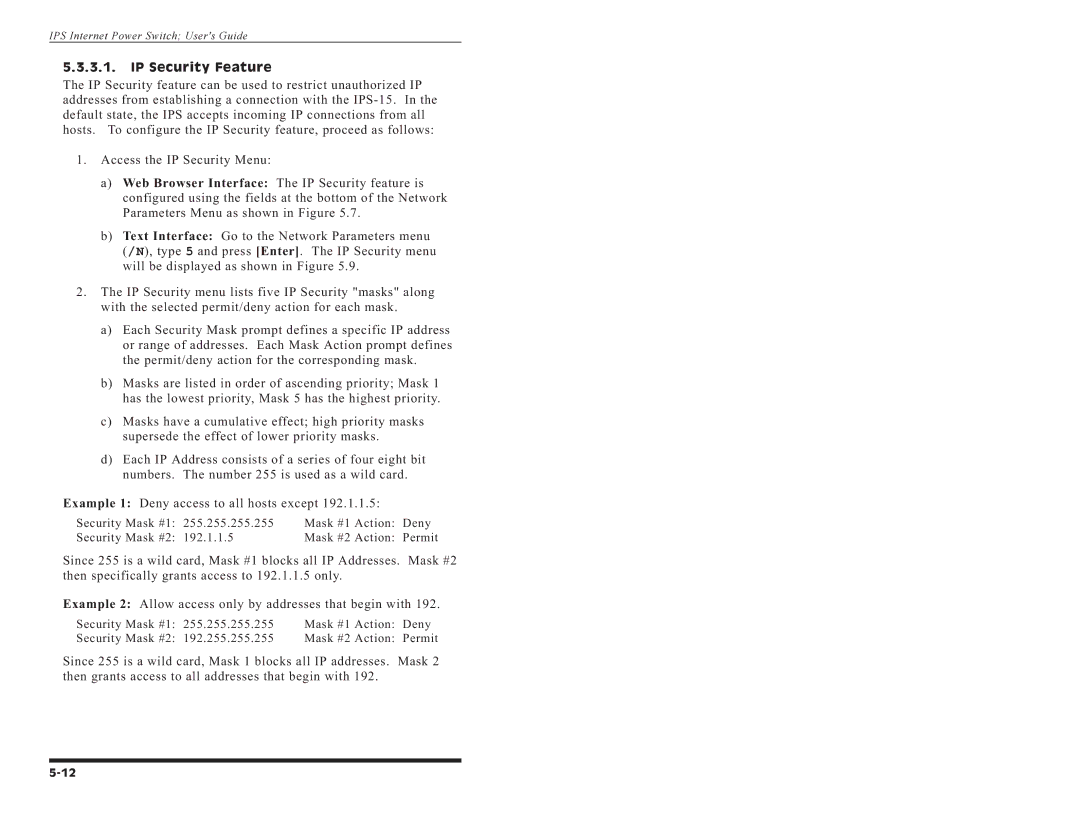
IPSInternetPowerSwitch;User'sGuide
5.3.3.1.IP Security Feature
The IP Security feature can be used to restrict unauthorized IP addresses from establishing a connection with the
1.Access the IP Security Menu:
a)Web Browser Interface: The IP Security feature is configured using the fields at the bottom of the Network Parameters Menu as shown in Figure 5.7.
b)Text Interface: Go to the Network Parameters menu (/N), type 5 and press [Enter]. The IP Security menu will be displayed as shown in Figure 5.9.
2.The IP Security menu lists five IP Security "masks" along with the selected permit/deny action for each mask.
a)Each Security Mask prompt defines a specific IP address or range of addresses. Each Mask Action prompt defines the permit/deny action for the corresponding mask.
b)Masks are listed in order of ascending priority; Mask 1 has the lowest priority, Mask 5 has the highest priority.
c)Masks have a cumulative effect; high priority masks supersede the effect of lower priority masks.
d)Each IP Address consists of a series of four eight bit numbers. The number 255 is used as a wild card.
Example 1: Deny access to all hosts except 192.1.1.5:
Security Mask #1: | 255.255.255.255 | Mask #1 Action: | Deny |
Security Mask #2: | 192.1.1.5 | Mask #2 Action: | Permit |
Since 255 is a wild card, Mask #1 blocks all IP Addresses. Mask #2 then specifically grants access to 192.1.1.5 only.
Example 2: Allow access only by addresses that begin with 192.
Security Mask #1: | 255.255.255.255 | Mask #1 Action: | Deny |
Security Mask #2: | 192.255.255.255 | Mask #2 Action: | Permit |
Since 255 is a wild card, Mask 1 blocks all IP addresses. Mask 2
